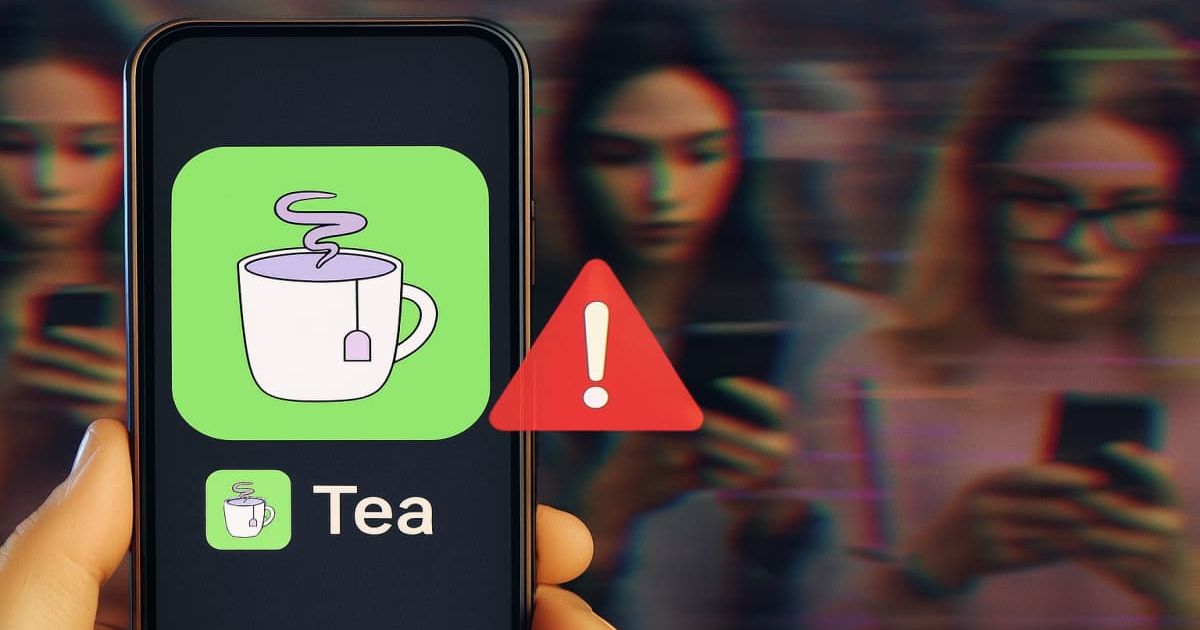Just when we thought the Tea app controversy had peaked, another so-called “safe space” has found itself in hot water, and this time, it’s a male version of the infamous dating review app, and yes, it’s already leaking user data. Sound familiar?
It’s giving serious déjà vu… and not in a good way.
Tea App And TeaOnHer: A Privacy Nightmare
The original Tea Dating Advice app, positioned as a safe haven for women to anonymously flag men with “red flags,” promised trust and discretion but failed dramatically.
In July 2025, it was hit by two major breaches: over 72,000 images, including selfies and government IDs, were stolen, alongside more than 1.1 million private messages revealing deeply personal conversations. Much of this sensitive data was posted on platforms like X.
These breaches have sparked lawsuits; Tea now faces consolidated federal class‑action litigation. The irony is stark: an app designed to protect women has become the source of serious personal danger.
Enter TeaOnHer, a “rival” app for men launched just this week and already ranking near the top of the iOS Lifestyle charts. But this iteration appears to be no safer. TechCrunch discovered glaring vulnerabilities that expose:
Usernames, email addresses, and uploaded government IDs and selfies are all accessible via simple public URLs.
In at least one case, admin login credentials (email and plaintext password) were openly available, potentially granting full control via the app’s back-end panel.
Disturbingly, the “guest” (i.e. non-logged-in) view shows explicit images of women, possibly shared without consent, along with hateful commentary.
In some cases, extremely inappropriate photos and harmful commentary about women were visible without any authentication. Yes, you read that right. Anyone with a browser and a little curiosity could snoop around. And this wasn’t a deep web operation—it was as simple as clicking a link.

A Pattern of Misplaced Trust
What we’re seeing is a repeated failure across similar platforms: apps promising safety or justice but built with glaring security oversights. Whether through misconfigured cloud storage, poor privacy design or rushed, AI-driven development cycles, these platforms betray—and endanger—the very communities they aim to serve.
Tech observers now warn of a disturbing trend: “vibe coding”, producing software that looks polished but lacks foundational security protections.
Users of both Tea and TeaOnHer face heightened dangers of identity theft, harassment, doxxing, and abuse. The apps’ failure undermines trust and showcases the need for:
- Rigorous privacy safeguards and secure infrastructure
- Transparent, timely breach disclosure protocols
- Regulatory standards that require meaningful accountability
- A stronger focus on ethics, not just user acquisition
Déjà Vu, But Worse?
Tea is already facing class-action lawsuits. Victims have spoken out, furious over how easily their private lives were broadcast to the world. Now, the same scrutiny is likely headed for TeaOnHer.
This isn’t just about tech glitches; it’s about a total failure in accountability. It’s about turning trauma into trending content. And most of all, it’s about how so-called “safe spaces” are turning into digital traps.
Stay tuned to Brandsynario for latest news and updates.






































